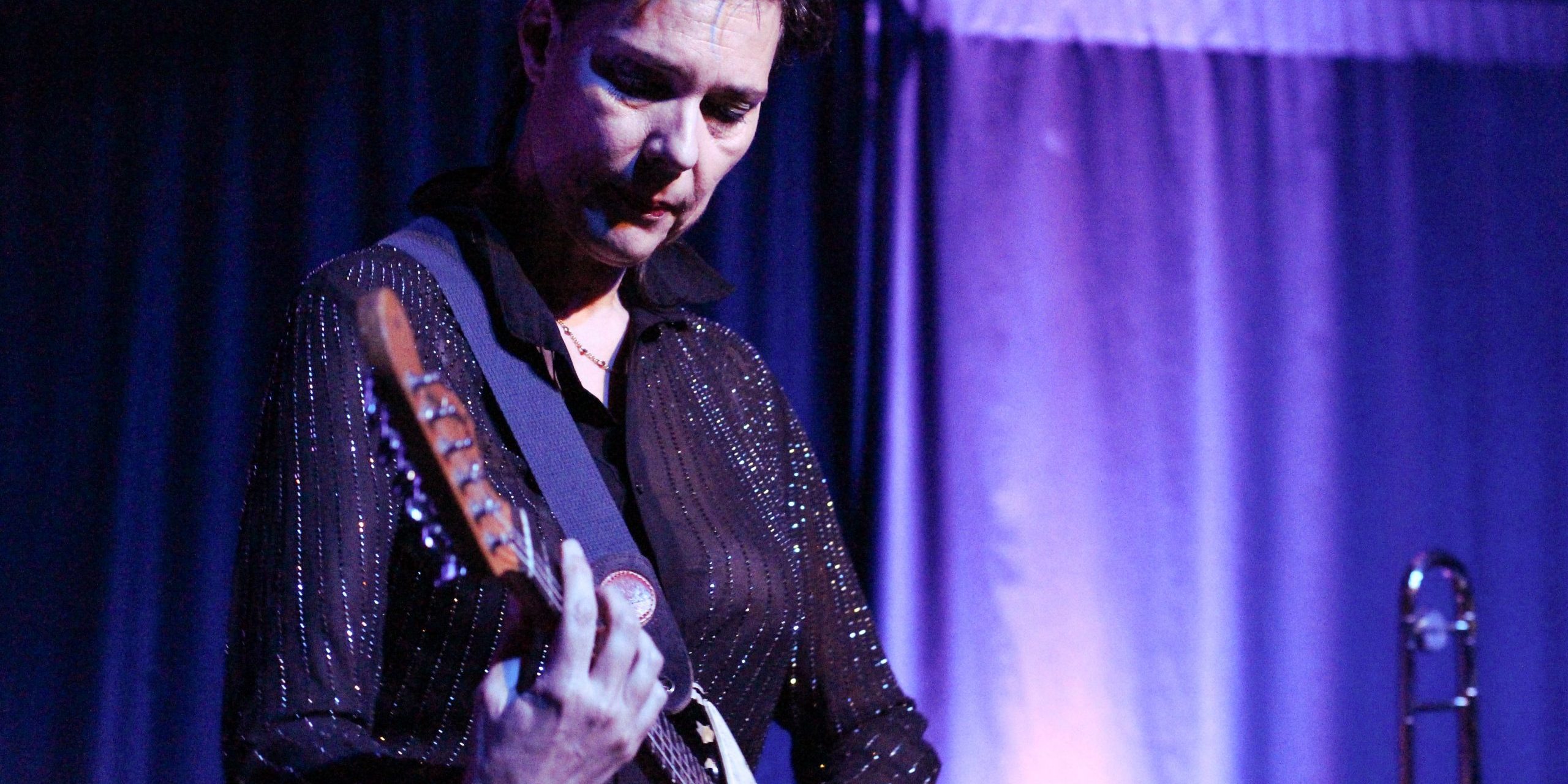Photos by Kayla Hayashi
There was something out of place that night. Los Angeles was unseasonably cold. A light rain had drizzled over the city a few hours before. It must have been just strong enough to wash all the Los Angeles off Los Angeles.
Kayla and I are UCLA students, so we are both Westsiders, and our excursion to the Eastside had us cross a sort of intercontinental divide. There the roads become a bit more unpredictable, the highway is nearly a hundred years old, and the buildings lay low as either boxes or bungalows. Zebulon is housed in one of those boxes, formerly a warehouse for records, and it’s painted completely black. Yet somehow, it’s much darker inside. Towards the front is a bar, a polished dive, bronzed in places by a series of industrial lamps. The concert was in the back, a generous space in relation to the bar, but modest when compared to so many of the elaborate and better known music venues in the city like the Wiltern and the Regent. There’s a little section of bleachers, put together by hand and also painted black, in the corner. The stage is maybe a foot off the ground. It was accompanied with a screen which projected Jonas Mekas’ famous film diaries.
Zebulon is a transplant. It originally lived in Williamsburg thanks to a pair of French brothers. Naturally, the bar and venue was pushed out due to gentrification in Brooklyn a little over ten years ago. Soon afterwards, it was revived by the same brothers in Los Angeles, where it has little interest in impressing stereotypical Angelenos. To walk inside Zebulon is to walk inside a haunt in Neukölln or the Marais.
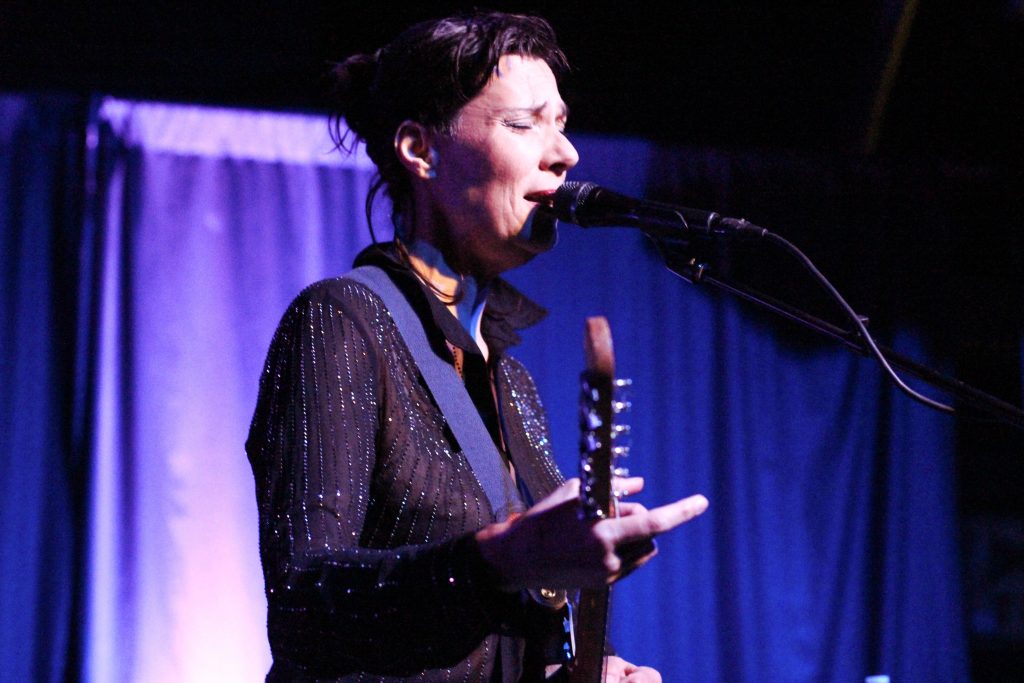
In other words, it’s the perfect place to host Lætitia Sadier, the French born and London based artist best known for her work with the legendary band Stereolab. She was in town to end her North American tour. To commemorate the occasion, she had her electric tea kettle for sale at the merch table, signed off with the message, “Sad to let you go …” Her latest album Rooting for Love came out around a month and a half ago, and it continues her lifelong project of building a socialist utopia one transcendent pop song at a time. Although she’s been productive and prolific for over thirty years, her creativity and voice are as strong as ever, as evident in recent tracks like “Une Autre Attente” and “Panser L’inacceptable.”
She attracted a sizable crowd, full of bookish friend groups and music fiends. At one point Kayla asked me about a song that played overhead, and a stranger immediately responded from behind my shoulder, “‘1880 Or So’ by Television!” It was remarkable. I’m positive that there isn’t an album in recorded history that isn’t in the collective shelves of the audience that gathered to see Lætitia Sadier perform last Thursday.
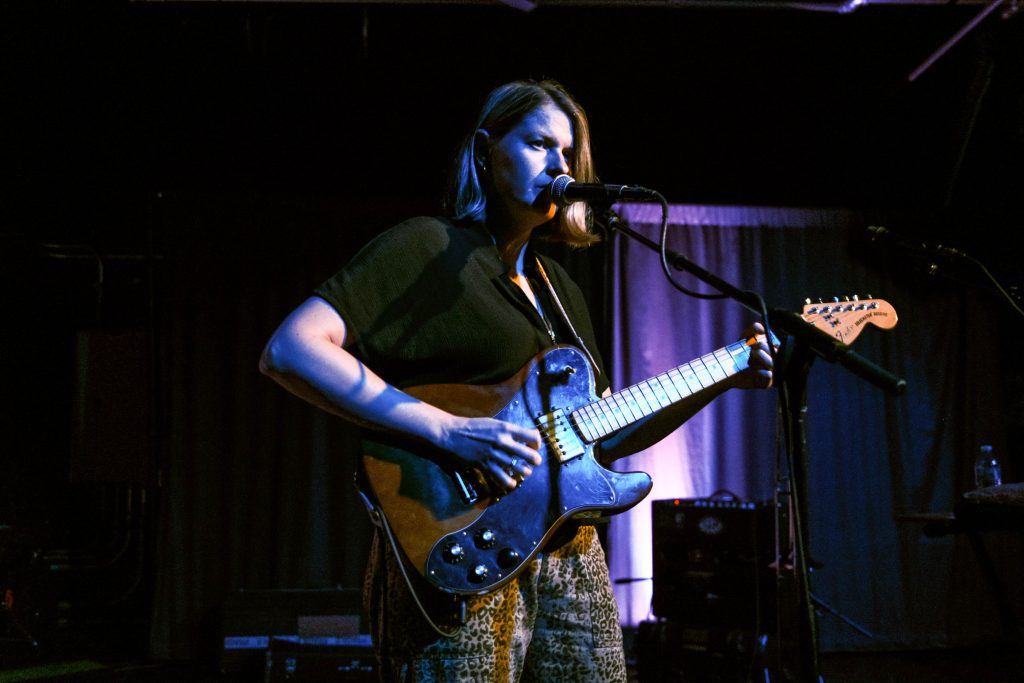
The show was opened by another French expat. Sofia Bolt is a Los Angeles based musician whose work ranges from surf pop to aggressive guitar rock, sometimes in the same song. She performed by herself, with just her axe and a bunch of pedals, and opened off the set with a lengthy but casual solo delivered without a word. It was immediately clear that she was something of a master with her instrument. Her stage presence was a bit meek and shy. At one point she asked the audience about the weather. Then a song later she apologized for the mundanity of her stage banter. It was quite charming and very funny, especially because her music is so infectious and charged. For instance, the enraged power chords in “Secrets” blew over the crowd. We watched, hypnotized, when she sang a newly penned song, inspired by the Cate Blanchett film Tár, where her Chelsea boots tap danced on her array of pedals to create mind boggling loops and haunting effects. My own favorite moment was her closer, “Get Out,” a personal and angry track that stands with the best of Liz Phair. Sofia Bolt might be quiet in conversation and she’s plays it cool and calm on the stage. It’s perfect because this reserve only emphasizes her awesome command of her craft and how she can shred until sublimation.
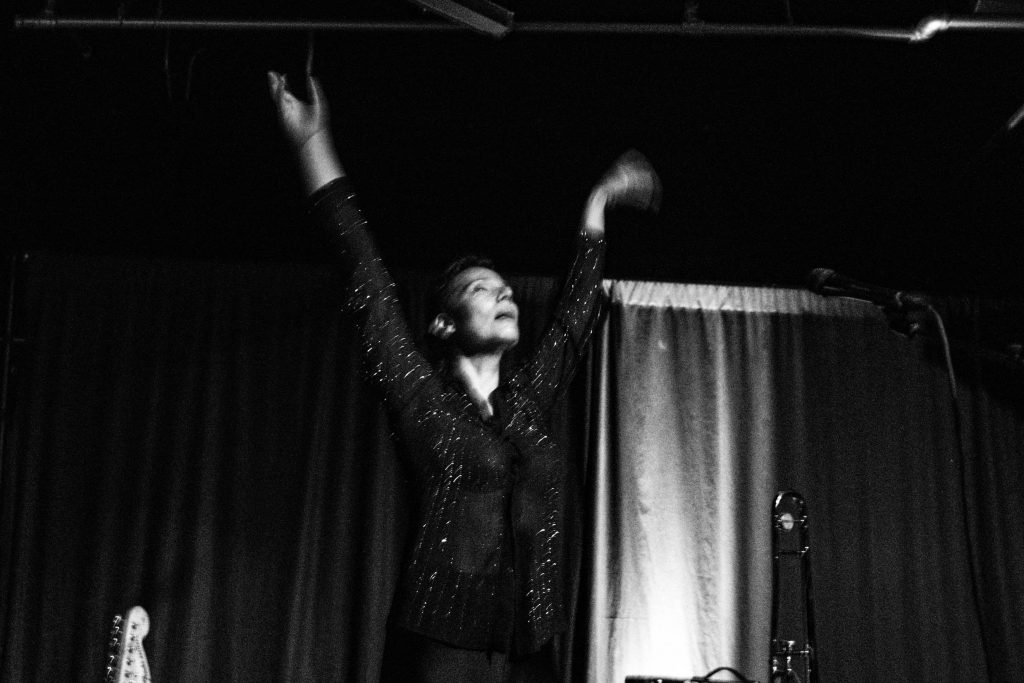
Lætitia Sadier walked on stage with a tea cup. I still wonder if it contained a drink warmed up by her autographed kettle. She was surrounded by an old beaten up Fender Mustang, a trombone, and a soundboard on a makeshift table. “This is the band,” she told us, pointing to the small machine. There was no one else. Left-handed, Lætitia held her guitar upside down with the strings in ascending order like Jimi Hendrix. She opened up with 2015’s “Dry Fruit,” an easy and welcoming entry into her performance.
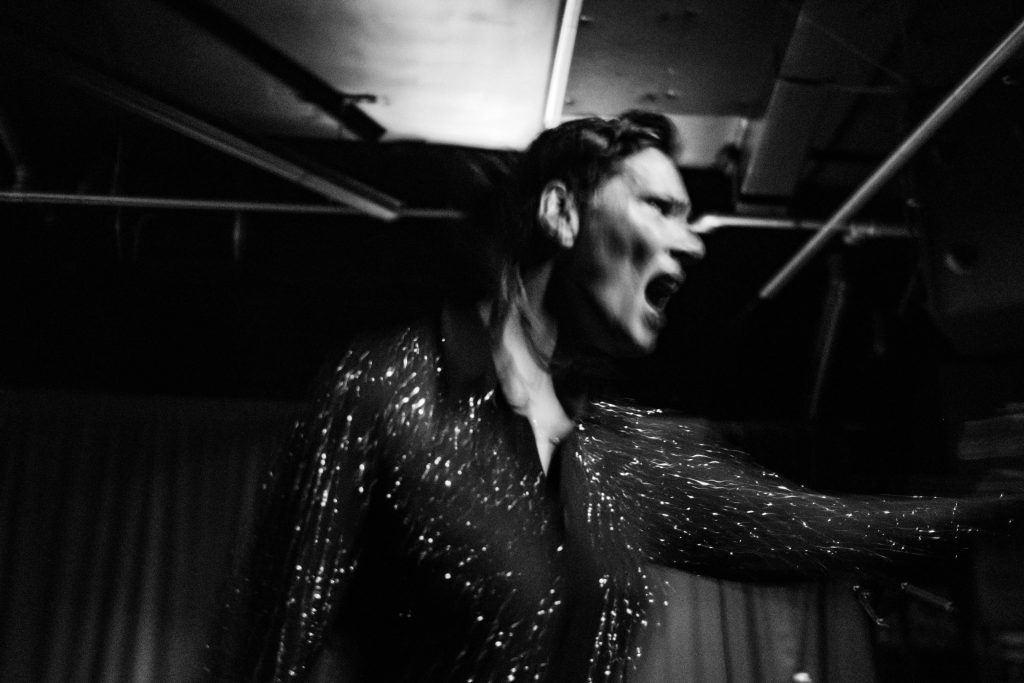
Little by little the act grew in scope, noise, and complexity. Lætitia began to step away from her instruments and danced in yogic poses. After she played “Don’t Forget You’re Mine,” the concert transitioned into a sound installation. Her skills were in top form. Much like Sofia Bolt before her, she balanced delicate guitar play with complicated pedal work. Her guitar solos were just as smooth and enchanting as her legendary voice. That voice. It’s incredible to experience her vocals live because then the multiple tones, registers, and her pure range are on unfiltered display. There were times where she screamed, and somehow it sounded clean and clear as crystal.
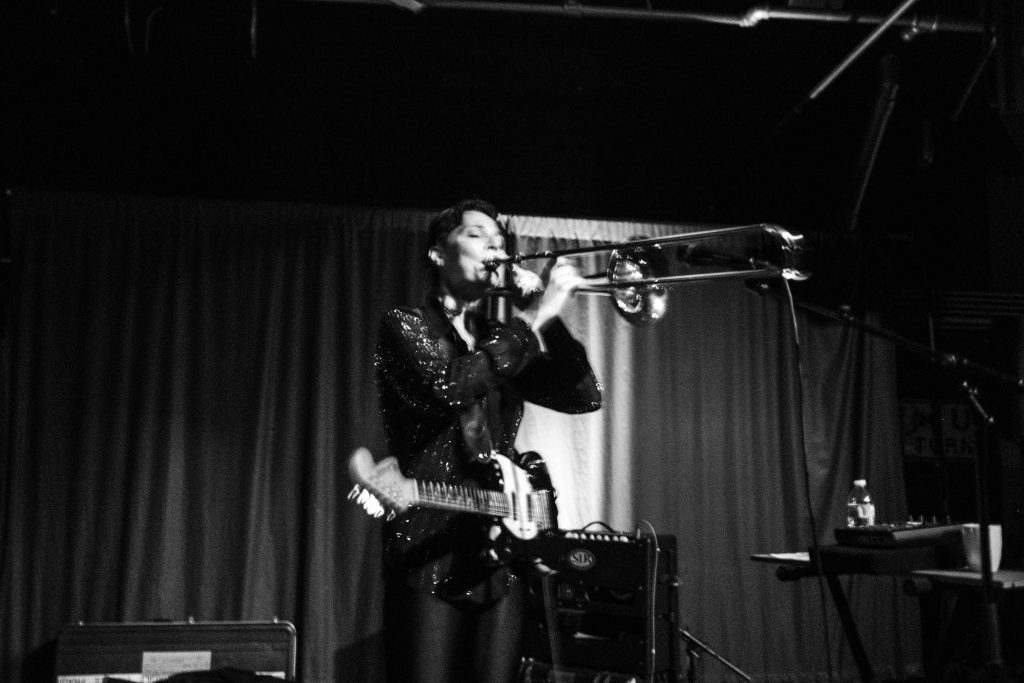
Sometimes her interdisciplinary prowess was comical to witness, like when she performed a trombone solo with her guitar hanging off her shoulder. It was a circus act, but it didn’t interfere with the excellence of the show. She made that trombone drone like La Monte Young. The themes of her songs were cosmological in scope. From the end of civilization, or rather what is to come after the end of civilization, in “Reflectors” to the dream of a new world with “Swim.” The entire night elevated into the outer realms of the galaxy with the numinous “Cloud Six,” where her improvisation on the soundboard reached unprecedented heights. Once the noise settled into a richly textured loop, the crowd had succumbed into a trance. Lætitia Sadier then walked over to me, touched my shoulder, and sang in my ear a message from the universe. It was obvious by then that I was no longer in Los Angeles. I was no longer in Williamsburg. No it wasn’t Neukölln. Not the Marais. It was the ether, where light and sound are one.
That moment could not have been real. After the show ended, everyone came back to reality and began to disperse towards the exits and sidewalks. A blonde man and a blonde woman walked over and approached me. “Did she actually touch your shoulder?”
I answered their question with another question, “I have no idea, did she?”
“Yes!” Said the blonde woman. I was in total disbelief, but then I noticed tears on her eyes and cheeks. It was all the evidence I needed of our transformation. Together we had all witnessed a small glimpse at utopia between the birth and death of the world.

